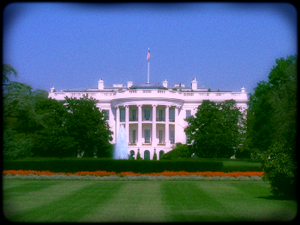For another indication of how little the Obama administration thinks of immigration enforcement, there's the story of Administrative Law Judge (ALJ) Ellen Thomas.
Ms. Thomas has a blameless record, but she symbolizes the government's lack of zeal for enforcing employer sanctions, the long-standing statute that says, in effect: "thou shalt not hire illegal aliens."

As we reported in June, she was at the time the sole ALJ dealing with employer sanctions fines in the Justice Department's Executive Office of Immigration Review – and she handled other kinds of cases as well.
Although this is probably not a case of cause and effect, on December 2, DOJ announced that an additional ALJ had been hired by EOIR to help Ms. Thomas with her workload. She is Stacy Stiffel Paddack, and she worked previously as a DOJ lawyer on immigration matters and as a Social Security Administration ALJ.
Two ALJ's are better than one, certainly. But if the administration were serious about enforcing employer sanctions there would be dozens of ALJs doing this work.
In that June item on Ms. Thomas, we mentioned her then most-recent ruling, against a big Texas bus company, Autobuses Ejecutivos, LLC. It had been charged in a civil suit with abusing the H-2B (unskilled non-immigrant worker) program by discriminating against U.S. citizen and green card bus drivers in favor of presumably less-expensive H-2B drivers from Mexico. She denied an attempted dismissal of those charges and said that the case should move ahead.
My reaction at the time was that I hoped that the bus company would be debarred from using the H-2B program for at least a couple of years. (It had some 50 H-2B drivers.)
No such luck. Again in keeping with the administration's lack of interest in such matters, the DOJ agreed to an announced settlement with the company that apparently kept it in the H-2B program, but forced it to establish a $208,000 fund to compensate the discriminated-against drivers. The company also had to pay a $37,800 civil penalty and it agreed to a monitoring of its hiring practices for two years. It is not clear what happens to the $208,000 if, some years from now, all of it is not used to repay U.S. bus drivers. Does Autobuses get some money back?
All in all, I would call it a slap on the fender.
